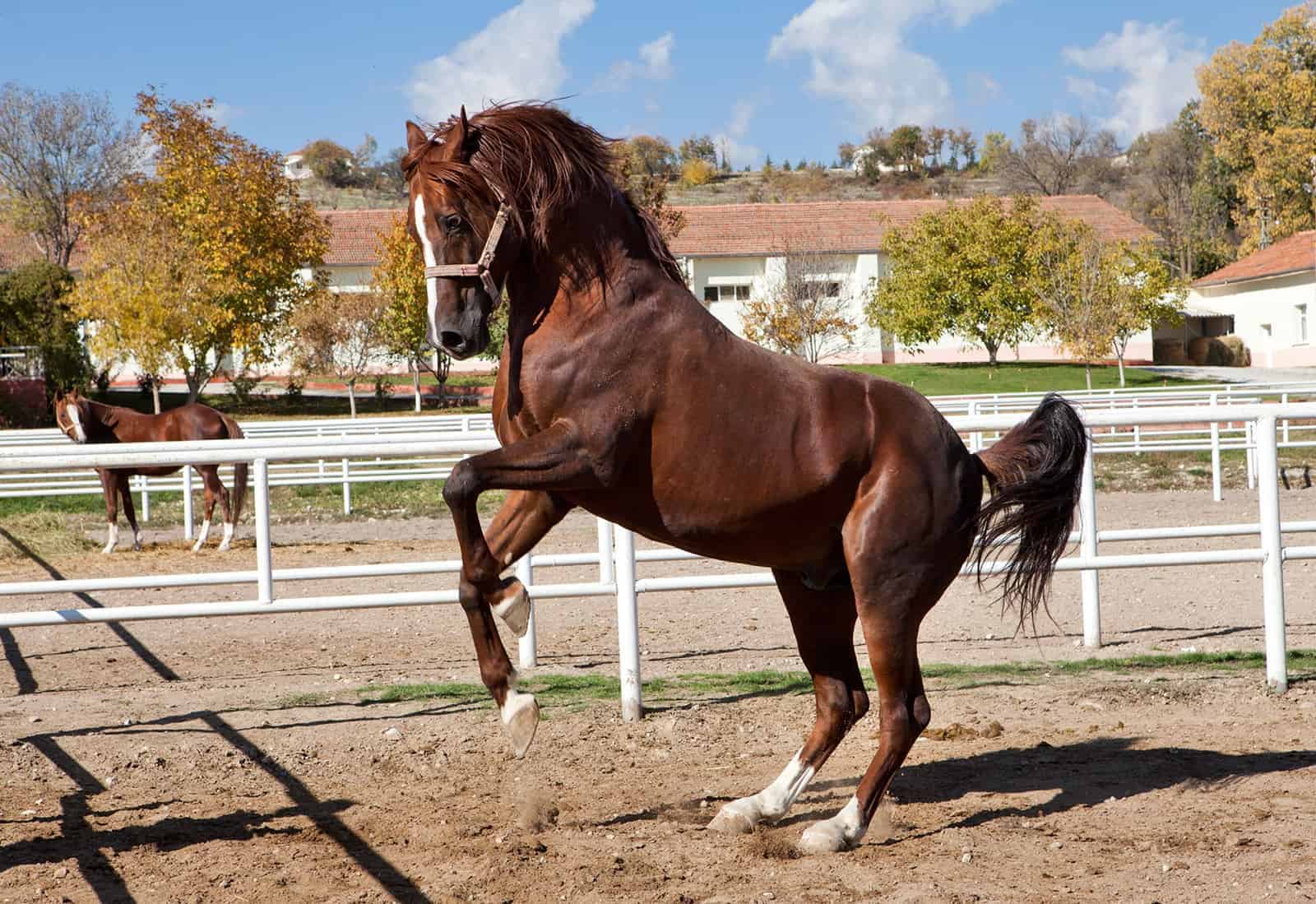Is This Head-Bumping Horse Aggressive or Confused?

Q.As part of my equine therapy, I work with a gelding that is 16 years old. He is stabled with two mares, and there are three others in the pasture across from him. I am 63 years old, and I had no experience with horses until two years ago. I do not ride this horse, but I brush him and know limited things to work on with him in the round pen.
Since I’ve been working with him, he will take his head now and then and bump me. I was told this is a sign of affection. I had grown to be more comfortable with this after I heard that. A few weeks ago he suddenly began bumping his head into me over and over in one session. That concerned me and scared me, as I fall easily.
The owner and horsewoman that works with me suggested that she put him in a large arena to let him run around and get rid of some of his energy. I followed her into the arena and sat on the mounting block, which was right next to the rail and near the entrance/exit gate. At first he took off for a short time and ran around. He then started to gallop right along the rail. He flew past me at full speed. He’d fly past me, make a small circle around, and again hug the rail and fly past me. This happened about three times, and I was getting very nervous. I had a friend on the other side of the rail, and I told her I needed to get out of there. I no sooner said that when again he flew past me, but this time he turned around afterward to face me, and flew past me, heading right at me. I immediately got out of there
Create a free account with TheHorse.com to view this content.
TheHorse.com is home to thousands of free articles about horse health care. In order to access some of our exclusive free content, you must be signed into TheHorse.com.
Start your free account today!
Already have an account?
and continue reading.
Written by:
Sue McDonnell, PhD, Certified AAB
Related Articles
Stay on top of the most recent Horse Health news with











